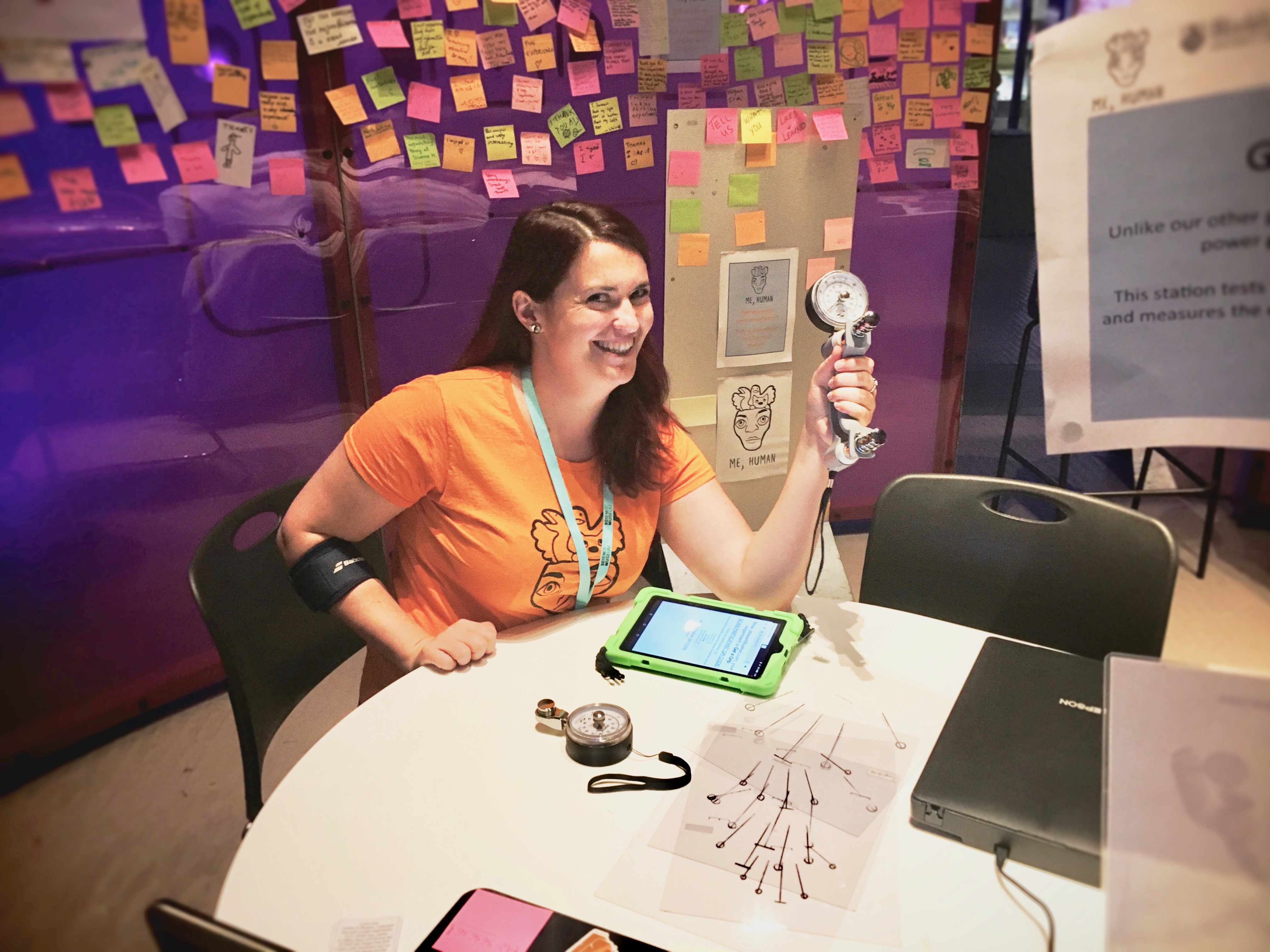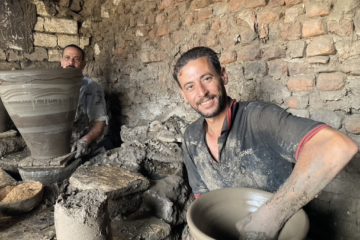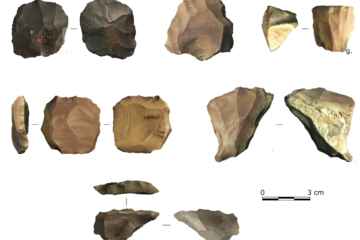
Ameline Bardo,
Former Fyssen 2017
Live Science in the London Science Museum, and located in the Wellcome Wing’s ‘Who Am I?’ gallery, gives the opportunity of the annual 3.4 million visitors with the opportunity to “experience science for themselves by participating in real research experiments”. This summer, Dr Ameline Bardo is helping to run the Me, Human project as part of Live Science, and part of her Fyssen Postdoctoral project.
Me, Human is directed by Dr Gillian Forrester from Birkbeck, University of London in collaboration with the University of Kent and other London-based universities. Me, Human is a set of scientific experiments allowing visitors to experience, first hand, the asymmetric functionality of their own left and right hemispheres and inform visitors about the contribution of these ancient vertebrate traits on modern human cognition. This project is a unique opportunity to inform the public about how humans evolved and continue to develop unique social and communication abilities, and to collect data to further investigate the relationships between brain/behaviour asymmetries and cognitive skills from an unprecedentedly large and diverse population.
Dr Ameline Bardo and Prof Tracy Kivell (University of Kent), are leading the Get a Grip station, one of several in the project, which allows visitors to have measurements of their hands taken. The shape of the human hand can be quite variable and better understanding the factors that might influence these differences will help the team to more accurately infer the manipulative abilities of our human ancestors. The objective of the Get a Grip experiment is to quantify the morphological variability of the human hand, from young children to elderly adults, and to test the link between hand shape, manual activities and abilities (e.g. do participants rock-climb or play a musical instrument?), grip strength and laterality (i.e., dominant use of your left or right hand). These data will not only provide valuable information about morphological asymmetry and handedness in humans, but can also be correlated with data collected at other stations, such as the Manipulation Station, measuring dexterity differences in your left versus right hand, and Affectation & Articulation Station, measuring the function of the left versus right sides of your brain.
Me, Human at Live Science opened 2 July and will run until 30 September at the Science Museum in London between 11.00 am and 4.00 pm (Tuesdays through Saturdays).
Dr Ameline Bardo is a Biological Anthropologist and Primatologist working on the evolution of tool use and manipulation in primates as well as the emergence of the unique features of the human hand. She completed her PhD at the National Museum of Natural History (Paris) in November 2016, in which she looked at the evolution of the hand and manipulative abilities in great apes compared with humans. Ameline was awarded a 2 years Fyssen Postdoctoral Research Fellowship in 2017 to work on the project ‘Evolution of human dexterity, precision grip and stone tool-making’ at the School of Anthropology and Conservation (SAC) at the University of Kent (UK). Currently, Ameline continues working on the evolution of human dexterity as a Postdoctoral Research Associate in Biological Anthropology at SAC and is also the manager of the APE (Animal Postcranial Evolution) lab.


